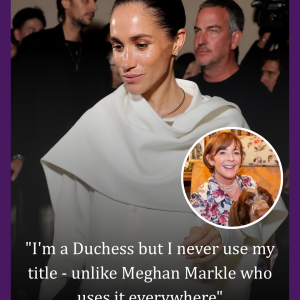
During a formal state dinner with French President Emmanuel Macron, King Charles delivered a speech that sparked renewed speculation about the strained relationship within the royal family—especially between the monarch and his youngest son, Prince Harry.
While welcoming President Macron and other dignitaries to Windsor Castle, the King referenced his son, Prince William, in a way that seemed deliberate and symbolic. He noted the historical significance of the castle, which dates back to William, Duke of Normandy, and pointed out that “my son, the Prince of Wales… has made Windsor his home with his family, like so many of our predecessors.”

Though the speech celebrated the UK’s deep ties with France and included praise for President Macron and his wife Brigitte, many observers noted a conspicuous absence: there was no mention at all of Prince Harry or his family.
Observers see a message between the lines
The omission comes just months after Prince Harry publicly expressed his hope for a reconciliation with his father and brother, saying in a televised interview that he would “love a reconciliation” and acknowledging his father’s cancer diagnosis. At the time, Harry also shared his uncertainty about returning to live in the UK, citing concerns over personal security and unresolved tensions with the royal household.

While some royal insiders suggest King Charles privately wishes to mend fences with his youngest son, public gestures—like this speech—tell a more complicated story. Royal biographer Ingrid Seward recently noted that Charles “would be much happier if William and Harry were friends again,” but accepts that “it’s just not about to happen.”
There is also speculation that Prince William plays a central role in the continued rift. According to reports in The Mirror following King Charles’ diagnosis, palace sources suggested William had drawn a firm line, allegedly making it clear that a full return by Harry to the royal fold would not be welcome.

Though the King’s speech was focused on diplomacy and historic ties with France, the choice to mention William—and not Harry—didn’t go unnoticed by the public or the press. Whether intentional or simply reflective of current royal dynamics, the silence spoke volumes.



